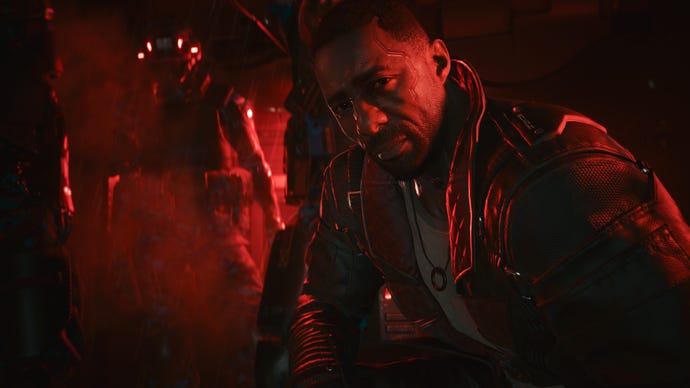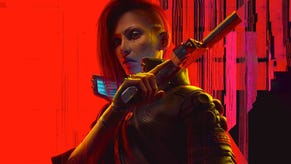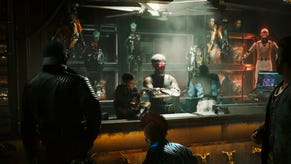Cyberpunk 2077: Phantom Liberty delivers on the promises the base game failed to deliver at launch – hands-on
CD Projekt Red has been hard at work on making Cyberpunk 2077 a prettier, better, and smarter game – and it really shows.
When Mike Pondsmith first came up with the Cyberpunk 2077 universe, he wanted to make sure punk – proper punk – was at the heart of it. “It’s not just the philosophical attitude of the punk scene and it’s not just the music – everything about punk inspired Cyberpunk originally,” he told me, years ago, in a crowded room at E3.
As the development of the game based on his beloved property continued, and Cyberpunk 2077 finally launched, this initial seed of the universe was easily forgotten. A world designed to interrogate corporate greed and reflect the ugly reality of capitalist culture, it turns out, was undone by some of the very things it set out to lampoon.
So sentiment towards Cyberpunk 2077 soured. Post-release, the game became a totem of more or less everything gamers hate about the industry at the moment; downgrades, broken promises, inconsistent messaging – the list goes on. Class-action lawsuits, the removal of the game from storefronts, mainstream news hits about this slipshod, unsatisfying launch… what can go wrong did go wrong for Cyberpunk 2077. Even after years of refinements and improvements, and the game’s potential being eked out patch after patch, public sentiment towards Phantom Liberty is tepid at best. Hostile, at worst.
But, it’s worth remembering, CD Projekt Red isn’t simply Cyberpunk 2077 – it’s also The Witcher 3, one of the most beloved games of all time. A modern classic. It’s also the two major expansions for The Witcher 3 (Blood and Wine and Hearts of Stone) – DLC packages that are widely hailed as some of the best value add-ons we’ve ever seen. A tonic to the horse armours and battle passes that proliferate elsewhere.
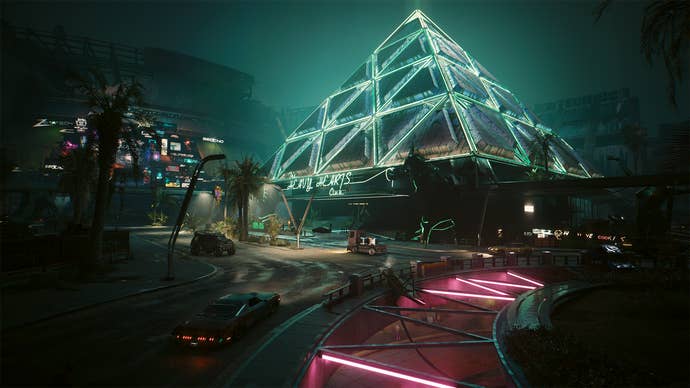
"We are creators, and we wanted to make the most awesome expansion for the game that we couldn't get everything into at launch," says game director Gabriel Amatangelo when I note that Phantom Liberty has what it takes to redeem Cyberpunk 2077 in the eyes of those still cynical. "For the past two years, we've just put our heads down and got on with this. 'Let's do more, let's add stuff, let's really figure out what oppertunities this world can provide' – that's what we've been really thinking about."
And, take it from someone that’s played it, Phantom Liberty is good. Fast, angry, drenched in neon and blood, packed with the sort of performances you’d expect from one of the most high-profile games in our industry. The production values are through the roof. All the voice talent, all the environmental design, all the bombast… it’s intact. Maybe even a bit shinier and nicer, now that the PS4 and Xbox One-shaped albatross around CDPR’s neck has finally dropped into the ocean.
The premise is simple: you must work with with NUS president Rosalin Myers after an attempt is made on her life. You’ll be briefed and supported by Songbird, a very pretty name for someone with a very ugly set of skills. Beyond that, details are scarce, but suffice to say it’s a spy-thriller – part-Archer, part-Alpha Protocol, part-Ian Fleming. It takes you into a walled-off part of Night City, home to bastards and thugs, and dares you to get out. That’s your goal; survive, and figure out what the hell is going on. Your actions in the DLC will have a bearing on the end of the full game, too.
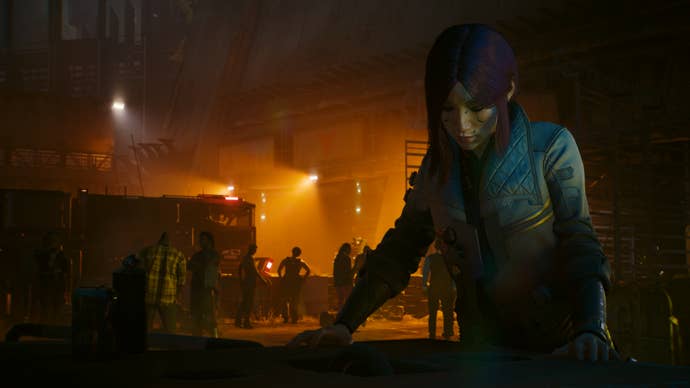
You might think it’s odd that a game set in a genre obsessed with being anti-establishment and harnessing the just anger of rebellion, setting a story around the President of the Not-Quite-United-States. “Myers is a realistic character, with complex emotions and agendas, and we want the player to navigate that and triangulate it with everything else in the world,” teases Amatangelo. "Certainly, we're not afraid of challenges, and we want to be bold with the characters and the settings and the dynamics and the characters, and we don't want to go for the easy shortcut stuff. We want to go for the stuff that broadens people's horizons, and challenges how they think. How's that for an answer without spoilers?!"
In terms of gameplay, the two most meaningful updates I picked up on were the alterations to armour/clothing, and the new Relic skill tree. Combined, these new elements expand the depth of the RPG systems in the game. On their own, they add more granularity to how you develop and perfect your build.
Relic, as a skill tree, adds things like Vulnerability Analytics (see enemy weaknesses in the HUD), Emergency Cloaking (activate camo during combat), Spatial Mapping (increase liklihood of critical hits and dismemberments with Mantis Blades), and Sensory Protocol (activate slo mo when detected whilst crouching). It’s all about combat utility, and interacting with whatever build you’re running, and giving you more non-combat options if you do get drawn into a gunfight. I only had chance to play ‘Fast Solo’ – think MGS’ Raiden and you’ve got an idea of the build.
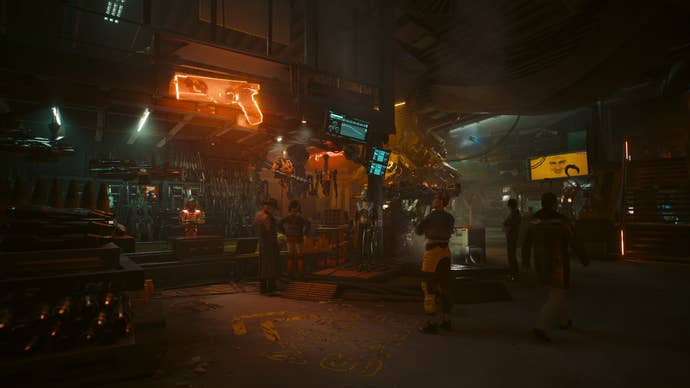
I say, without a shadow of a doubt, that combat Phantom Liberty feels even better than the main game; parrying bullets into hired goons moving in to provide support as you slice and dice the doomed meatbags closer to you? Airdashing into a vanguard unit and slicing their throats open as they reel in shock? Popping your camo when you get overwhelmed, flanking the bastards and coming in with one of their own pilfered shotguns? It feels more like Bulletstorm, or Shadow Warrior, or something – Cyberpunk wasn’t designed to be a game like those, yet with the right build, it feels right at home in the genre.
“Visceral, is one of the key words for us, here,” nods Amatangelo when I drop that Bulletstorm reference in conversation. “We want, when you're playing our games, fantasy fulfilment. And a big part of fantasy fulfilment in Cyberpunk 2077 is being this cyberwear superhuman – so in Phantom Liberty, we have all these new skills and traits and abilities that play into that and let you fulfil this fantasy. Combining these abilities and skills for emergent gameplay? That's the center of what we wanted to do."
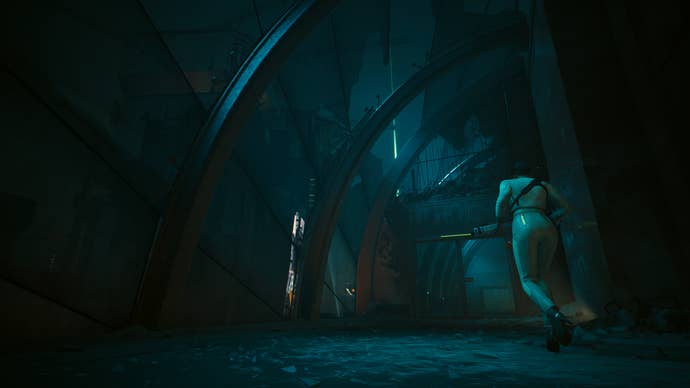
With Phantom Liberty, it looks like CDPR is back to its old self; keen on the pedigree, dedicated to delivering something worthwhile, respectful of your time and wallet. The DLC may cost more than both sets of The Witcher 3’s DLC combined, but it also promises to inject a meaningful amount of content – a mouthful of spit and a fistful of polish – to the base game at the same time.
Seeing the confidence with which [Game director Gabriel Amatangelo] and his team have come out with, and the fluidity and freneticism of the DLC so far, I am not concerned about the value proposition of Cyberpunk 2077: Phantom Liberty. “Listen to punk and at a certain point you’ll realise it’s not talking about the world, it’s about how you relate to the world on your level,” Pondsmith told me, once upon a time. “That’s important. [Punk’s] anthem isn’t ‘let’s save the world, we’re all friends’, it’s ‘you got in my face motherf***er’... followed by a headbutt.” Phantom Liberty looks like it’s living by that philosophy, and fulfilling a cyberpunk promise many have been craving for the past three years.
Cyberpunk 2077 is available on PC, PS4, PS5, Xbox One, and Xbox Series X/S. Phantom Liberty launches September 26, and it'll set you back £24.99.
